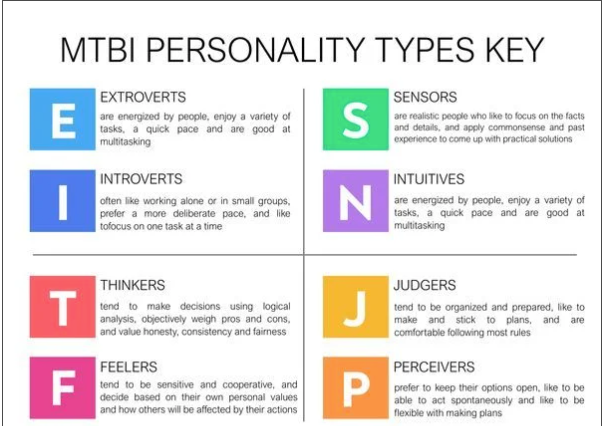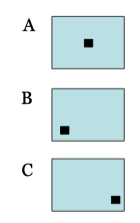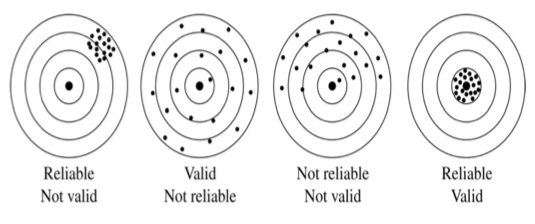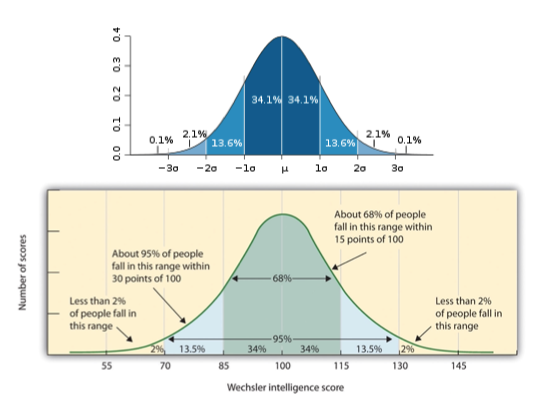Lecture07
How do we measure or assess psychological concepts and constructs?
Key topics today
The week ahead (week 7)
- Personality & Individual Differences Essay due (Submission Fri, 25th Nov)
- RASA and EC deadline (Fri, 9th December)
- W7 Personal Tutor session on the use of feedback
- W8 Personal Tutor session on Ethics and general development questions for the MD
- Department Seminar Series.
- Tuesday (22/11/2022) and preview of 8th December
- Strike days - 24th (Thu), 25th (Fri), 30th (Wed)
- Labs - Task development and ethics
Department Seminar Series this week
Tuesday, 22 November 2022 at 16:00 – 17:00
Please join us for the third of our departmental seminars given by Carolien Torenvliet (University of Amsterdam) and Dr Rebecca Charlton (Goldsmiths, University of London).
Title: Subjective and Objective Cognitive Decline across Adulthood for Autistic People
Abstract: Research on the impact of ageing for autistic people is scarce. It is crucial to understand how ageing may impact autistic people due to both the increasing awareness of middle-age and later life for autistic people and the known changes that occur with ageing generally. Changes in cognitive abilities in particular are important as decline in cognition is associated with reduced independence and increased risk of dementia. In this seminar the speakers will present data on subjective and objective measures of cognitive abilities among autistic adults. They will discuss similarities and differences between findings, and comment on what these results mean for future research.
Department Seminar Next time
Thursday, 8 December 2022 at 16:00 – 17:00
Do ghosts exist? If not, how are we explain why so many people believe in ghosts with many of them claiming to have personally had a ghostly encounter? This talk attempts to answer these questions by considering a number of psychological factors that may lead someone to reach for a supernatural explanation when in fact a natural explanation would suffice.
Professor Chris French is the Head of the Anomalistic Psychology Research Unit in the Psychology Department at Goldsmiths, University of London. He is a Fellow of the British Psychological Society and of the Committee for Skeptical Inquiry and a Patron of the British Humanist Association. He has published over 150 articles and chapters covering a wide range of topics. His main current area of research is the psychology of paranormal beliefs and anomalous experiences. He frequently appears on radio and television casting a sceptical eye over paranormal claims. His most recent book is Anomalistic Psychology: Exploring Paranormal Belief and Experience. Christopher French | Goldsmiths, University of London
Any Questions?
How do we measure or assess psychological concepts and constructs?
Psychometrics; the science of psychological assessment.
General reader: Breakwell, Smith & Wright (2012) – Chapter 7 (available via reading list free online)
What Myers-Briggs type are you?

Myers-Briggs…
– Based on Jung’s non-scientific ideas about personality
– The four dimensions are binary. But most characteristics are normally distributed
– Very poor test-retest reliability.
– Almost no research support.
– Company behind the test CPP makes $20 million a year from it. Has little incentive to start from scratch!
https://www.vox.com/2014/7/15/5881947/myersbriggs-personality-test-meaningless
What is psychometrics?
– Meaning from Greek origin: ‘measuring the soul’
– Psychometrics is the field of study concerned with the theory and technique of psychological measurement, which includes the measurement of knowledge, abilities, attitudes, and personality traits
– Refers to all areas of psychology concerned with psychological measurement (methods of testing and substantive findings)
– Two major research tasks:
– (i) the construction of instruments and procedures for measurement;
– (ii) the development and refinement of theoretical approaches to measurement
A brief history of psychometrics
– Charles Darwin’s (1809–1882) Origin of the Species impacts scientific thinking in 19 th century
– Evolution (anthropology) combined with quantification (allure of numbers)
– Francis Galton (1822–1911) builds on cousin Darwin’s ideas with measurement and statistics
A brief history of psychometrics
– Galton developed the theory underpinning correlation and regression
– Used this theory to try to explain the heritability of human ability and achievement (amongst many other things)
– Developed a lab and tests for many concepts e.g. prayer, boredom, beauty
What is a psychometric test?
Sample of affect, behaviour, cognition etc
Obtained under standardized conditions
Scored using rules that provide allow for comparison of individuals
Ideally, we would like:
Multiple samples
Multiple situations (contexts, several occasions)
Multiple methods
But you can’t always get what you want…
Often, must measure individuals on
- One occasion
- Timed/ restricted conditions
So must use efficient methods
- Many opportunities (multiple choice tests)
- Objective scoring (no judgment involved)
- Adaptive item selection
Differences between a psychometric test and a general survey
- Scientific rationale
- Careful item development and test construction
- Objective
- Standardised
- Instructions
- Scoring procedure
- Reliable
- Valid
Clinical uses of psychometric tests
- Describe current functioning
- Further investigate impressions from less formal evaluation approaches
- Identify therapeutic needs
- Aid in differential diagnosis of disorder
- Monitor treatment over time to monitor success and identify new treatment needs
- Provide empathetic feedback
Occupational uses of psychometric tests
- Initial hiring
- Job selection
- Team development
- Career counseling
- Training readiness
- Succession planning
- Performance assessment
- Promotion
Educational uses of psychometric tests
- Counseling
- School exams
- University entrance exams
- Course exams
- Learning disabilities
Types of psychometric tests
Maximum performance test (can do)
- Intelligence tests (basic reasoning ability common to a variety of intellectual tasks)
- Attainment tests (mastery tests, e.g., your exams, certification testing)
Typical performance test (will do)
- Personality tests (ways of thinking, feeling and behaving)
- Careers and interests tests
– Different answer demands: effort versus candid truth
– Context dependent
Examples of maximum performance items (ability)
Odd one out
Tree, Man, Paper, Mouse
Next in sequence
1, 1, 2, 3, 5, 8…
Spatial reasoning
First 3 form a series,
Which comes next A, B or C ?
Stimulus


Image rotation task

Examples of typical performance items
Rate on a scale from 1 to 5 how true this is of you
(Costa & McCrae, 1992, Big Five)
Once I find the right way to do something, I stick to it
Dichotomous yes/ no answers
(Eysenck & Eysenck, 1976, Giant 3):
I am the life of a party
Forced choice
(Zuckerman, 1979, Sensation Seeking Scale)
A: I like "wild" uninhibited parties
B: I prefer quiet parties with good conversation
Properties of Psychometric tests
Properties of psychometric tests
Two important properties of psychometric tests
Reliability
–The consistency with which a test measures the construct
Validity
–The degree to which a test actually measures what it claims to measure “accuracy”
Essential properties: Validity
A test is valid if it assesses what it claims to measure
Many steps to achieve validity (including concurrent validity, predictive validity, construct validity and face validity)
Essential properties: Reliability
Test retest reliability
– Rule of thumb r between the two test times , 3 months apart > 0.7 (just under 50% agreement)
– Test re-test reliability is not perfect – never reaches 1: beware real changes!
Internal consistency reliability
– Internal consistency is the degree to which all items are measuring the same construct
– Cronbach’s Alpha should be greater than .70 for scales with items > 10
Reliability and Validity
I like to think of them as Consistency and Accuracy

Different types of tests - raters
Behavioral observation (observer-rated)
– People scored according to behaviors observed by a rater
– Used frequently in work and clinical settings (e.g. Performance appraisal)
Self-report
– Subjects indicate their level of agreement or preference concerning statements reflecting attitudes or behaviors
– Response distortion is a problem (e.g. faking a personality test)
Standardizing psychometric test scores
The raw score on many psychometric tests is based on an arbitrary scale
To give the scores meaning, we compare a person’s scores to a meaningful comparison group
Statistical basis: Normal distribution
Most human traits approximate to normal curve
–Largest number of cases cluster in centre
–Area under curve can be closely specified from mean and standard
Intelligence

Next week…
We might go about developing our own Psychometric Test.. if you want.